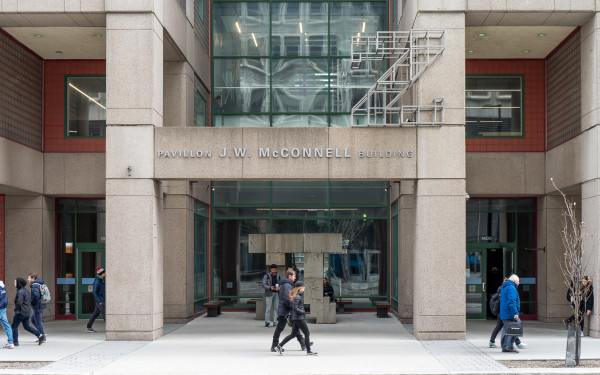Editorial: International Students Are Not a Resource For Quebec to Exploit
Deregulating Tuition Will Make Education Less Accessible
Concordia has a reputation of being an activist school.
We’re a student body that advocates for themselves within the institution. Yet, it can sometimes feel as though we have little agency when it comes to the decisions that affect us.
In the midst of the provincial election, it is crucial that students pay attention to the parties’ plans for higher education.
The mass strikes and protests of 2012 are still fresh in our memory. The anti-tuition hike campaign remains a source of inspiration for student advocacy, and a reminder that affordable education is a priority for the province’s student body, as it is for us here at The Link. While the tuition hike for Quebec students was blocked in 2012, international students’ fees are high, and will only keep getting higher.
The Liberals recently announced that the majority of international students’ tuitions will be deregulated in the fall of 2019, except for PhD and thesis-based master’s program students. This deregulation means that universities can, and likely will, hike the prices for international students, who already pay a much higher tuition than local students.
The provincial government is also investing heavily in attracting and retaining international students to Quebec, with the goal of replacing its aging workforce. In order to do so, the Quebec Liberal Party announced a plan to fund francophone universities who attract more international students; these universities have the potential to receive up to $9,000 for each newly enrolled student.
We feel the situation is exploitative of international students, on whom the province is banking as a solution for its economy as we are experiencing a labour shortage and an aging population.
In an interview with The Link, Institut du Québec Director Mia Homsy said that many schools have to rely on higher tuitions from international students to keep some programs open. It’s clear international students are disadvantaged with high tuitions in order to keep the system running.
The former provincial finance minister during the 2012 Maple Spring, Raymond Bachand, also led the study at the Institut du Québec that recommended deregulating tuition for foreign students. In that study, international students are described as “a precious sources of income.” This should not be the case. For the Institut du Québec, accessibility clearly does not seem to be a priority.
We strongly advocate for an education that is accessible to all. While putting an emphasis on engaging foreign students is positive, international students should not be viewed as commodities and their education should remain affordable. We urge universities to find ways to attract international students without exploiting them.
It’s worrying the government is deregulating tuition for international students. It sets a precedent for exploiting students, and we hope it doesn’t start a trend towards raising tuition for Quebec and out-of-province students as well.
Some international students are less likely to protest tuition hikes because they fear the potential arrest or deportation. They’re less likely to take the same risks as Quebec students, but that doesn’t mean they should be targeted.


_600_832_s.png)


4_600_375_90_s_c1.jpg)
1_600_375_90_s_c1.jpg)
